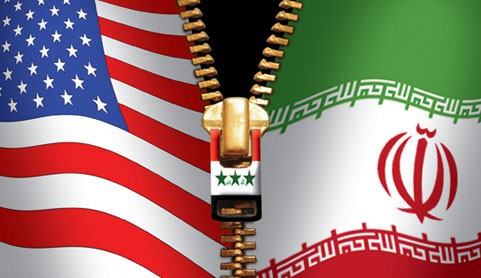 Saeedreza Jahromi:
Saeedreza Jahromi:
On April 8, 2011, Iraqi forces raided Camp Ashraf, killing 36 residents and wounding 345 others. The scenes of this inhumane act shocked the world. Waves of condemnation by the politicians and others were momentous.
Camp Ashraf is home to 3,400 members of Iran’s main opposition, the Mujahedin-e Khalq (MEK). Many of the residents were political prisoners in Iran who survived years of captivity and sought refuge in Iraq before being re-arrested and executed. Some 1,000 of the Ashraf residents are women.
A noticeable opinion among those familiar with the situation is that the terrorist designation of the MEK by the U.S. State Department has paved the path for the Iranian backed Iraqi attacks on the Camp.
European courts and governments, after years of careful reviews, have found terrorist allegations against the organization to be baseless, and have removed it from their respective watch lists. Interestingly, groups that have historically acted as the advocacy web of the Iranian regime have waged a desperate smear campaign against the MEK. Anyone who is conversant with how the world of public relations and media operate would find it extremely naïve to believe that this is not a coordinated campaign against MEK with Tehran’s fingerprints all over it. Here are some examples:
1- Massoud Khodabandeh and his wife Anne Singleton, who, according to court documents in England, operate a number of Iranian-financed websites dedicated to demonizing MEK members, have launched new attacks on this organization, and published an average of two to three articles per week against MEK for the past two months. In April, right before the Iraqi attack on Camp Ashraf, the man and wife team visited Iraq to provide consultation to the Iraq’s government on closing Camp Ashraf.
2- Over the past eight weeks, Press TV (Tehran’s UK-based English language TV broadcast of the Iranian regime), has intensified its anti MEK (MKO- Tehran’s pejorative term for MEK). Their programming ranges from interviews with the Iranian officials to any international “experts,” who would be willing to describe the group as terrorist in exchange for payments.
3- NIAC (National Iranian American Council) and its president, Trita Parsi have been hysterically publishing, blogging, developing web pages, tweeting, and facebooking against the possibility of delisting MEK. They have dedicated web pages on their website to this issue in order to generate new traffic to articles which rehash the same issues published on websites operated by the Iranian Ministry of Intelligence and Security (MOIS). They have even created new website dedicated to this cause. Trita Parsi has sent hundreds of tweets to a whole host of people, over the past eight weeks, expressing concern about the prospect of MEK getting delisting. He has even taken an unprecedented step (at least in Washington political circles) of photographing the activities of Iranian dissidents in Washington, DC, including those who attended congressional hearings on this issue, potentially jeopardizing their safety and security. Given Parsi’s contacts with Tehran, this is particularly alarming. Probably NIAC wants us to believe that their long history of advocating Tehran friendly causes has nothing to do with their recent rush for yet another Tehran friendly cause.
4- Mohammad Sahimi, who teaches in California, has made lengthy arguments in recent weeks against reconsidering the designation of MEK. Not surprisingly, his arguments are identical to those of Parsi and Press TV! What a coincidence! Sahimi, under the disguise of academic writings, has been staunchly advocating for allowing the Iranian regime to proceed with its ambitious nuclear program.
Needless to say that each one of the entities or individuals above have their own small circle of friends, and operatives to re-broadcast these message with slight varieties creating the appearance that this is their self-initiated message. Backed by extensive cyber machinery of the Islamic Revolutionary Guards Corp inside Iran that has its own bloggers and tweeters, and facebookers, their message is then distributes widely to create a phony impression that this is a popular issue.
Should we believe that this sudden anti-MEK campaign (at least 50 articles, 100 blogs,2 new sites, 4 web pages, 1000 tweets, 20 mass spam e-mails in 8 weeks) is simply a coincidence? Or is it an orchestrated campaign headquartered in Tehran aimed at preventing the delisting of the MEK? You make up your own mind.







